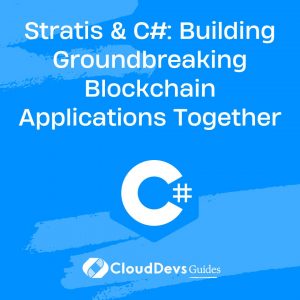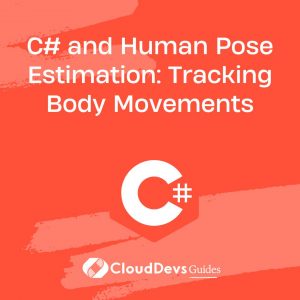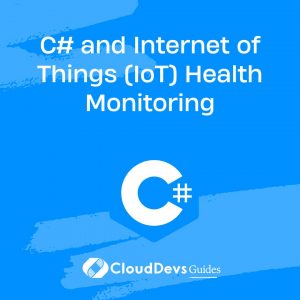Stratis & C#: Building Groundbreaking Blockchain Applications Together
Table of Contents
In the modern era, the term ‘blockchain’ has become synonymous with cutting-edge technology and decentralized systems. While often associated with cryptocurrencies, the blockchain is a technology with immense potential in a variety of sectors.

Table of Contents
For C# developers, diving into the world of blockchain offers a fascinating opportunity to contribute to the next generation of applications. As the demand grows, businesses are actively looking to hire C# developers skilled in blockchain integration. Let’s delve into how C# can be used to build decentralized applications (DApps) with the power of blockchain.
1. What is Blockchain?
At its core, blockchain is a distributed ledger technology that provides a secure and transparent way to record transactions. Every transaction is grouped in blocks, and each block is connected to the previous one, forming a chain. Once data is added to the chain, it becomes immutable, meaning it cannot be altered without altering all subsequent blocks, which requires consensus across all nodes in the network.
2. C# and Blockchain: A Natural Pairing
C# is a versatile, object-oriented language that runs on the .NET platform. Its powerful features make it apt for developing a variety of applications, including blockchain-based ones. One of the popular platforms for building blockchain applications in C# is Stratis.
Stratis Platform: Stratis is a blockchain development platform that allows developers to build and test DApps using C#. It provides essential blockchain infrastructure, smart contracts, and a full node solution that runs in C#.
3. Building Decentralized Applications (DApps) with C#
Let’s explore a few examples to demonstrate how C# can be harnessed to create DApps.
3.1. Smart Contracts in C#:
A smart contract is a self-executing contract where the agreement between buyer and seller is written directly into lines of code. These contracts run on the blockchain, ensuring security and transparency.
Example:
Imagine a simple contract between two parties where one party promises to deliver goods once a certain amount is paid.
Using Stratis, you can write this contract in C#:
```csharp
public class DeliveryContract : SmartContract
{
public DeliveryContract(ISmartContractState smartContractState)
: base(smartContractState) { }
public void MakePayment(ulong amount)
{
if (amount >= RequiredAmount)
{
DeliverGoods();
}
}
private const ulong RequiredAmount = 100;
private void DeliverGoods()
{
// Code to process delivery
}
}
```
The smart contract checks if the transferred amount meets the required threshold and then proceeds to execute the `DeliverGoods()` method.
3.2. Decentralized Voting System:
A voting system based on blockchain ensures tamper-proof elections with transparent results.
Example:
Let’s create a simple voting system where participants can cast their votes for candidates.
```csharp
public class VotingContract : SmartContract
{
public VotingContract(ISmartContractState smartContractState)
: base(smartContractState) { }
public Map<string, uint> Votes = new Map<string, uint>();
public void CastVote(string candidate)
{
Votes[candidate] = Votes[candidate] + 1;
}
public uint GetVotesForCandidate(string candidate)
{
return Votes[candidate];
}
}
```
In this system, votes are recorded on the blockchain, making them immutable and easily verifiable.
3.3. Decentralized Asset Management:
Blockchain allows for the creation of tokenized assets that can be securely transferred and managed.
Example:
Imagine a system that handles ownership of virtual properties:
```csharp
public class AssetContract : SmartContract
{
public AssetContract(ISmartContractState smartContractState)
: base(smartContractState) { }
public Map<string, Address> AssetOwners = new Map<string, Address>();
public void RegisterAsset(string assetId)
{
AssetOwners[assetId] = Message.Sender;
}
public Address GetAssetOwner(string assetId)
{
return AssetOwners[assetId];
}
public void TransferAsset(string assetId, Address newOwner)
{
Assert(AssetOwners[assetId] == Message.Sender);
AssetOwners[assetId] = newOwner;
}
}
```
Using this system, users can register virtual assets to their name and securely transfer ownership to another party.
Conclusion
The above examples only scratch the surface of what’s possible with C# and blockchain technology. As decentralized systems gain momentum, the demand for DApps will only increase, offering C# developers a wealth of opportunities. For businesses looking to be at the forefront of this revolution, it might be an ideal time to hire C# developers.
Whether you’re passionate about creating tamper-proof voting systems, trustless smart contracts, or decentralized digital assets, C# combined with blockchain provides a robust platform for the realization of these ideas. So, it’s time to harness the synergy of C# and blockchain and venture into the world of decentralized applications!



